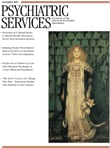Last Seen Leaving: A Novel
The intriguing second novel by Kelly Braffet, Last Seen Leaving , is a story that can be understood on many levels and has interesting interpersonal relationships and characters that are developed well throughout the story.
The book has multiple subplots that develop along several converging lines. An estranged mother-daughter relationship is developed from the perspective of a mother who does the best she can to raise a daughter as a single parent and a daughter whose life is indelibly marked by an idolized father. The father has been missing in action as a pilot since Miranda was a child and is romanticized by both Miranda and her mother throughout the story. Miranda has an off-beat, antisocial bent to her personality that includes risk-taking behavior, sexual promiscuity, and geographic impulsiveness. At one point, while her mother is trying to find her, Miranda takes up with a quiet stranger who may be connected with her father's mysterious espionage past or who may be the local serial murderer in search of his next victim.
Last Seen Leaving is not a novel that has an explicit connection with psychiatry, mental health, advocacy, or a consumer's or family member's lived experience with a mental illness. It is a novel that has many very interesting characters including minor characters that readily come to life through the craft of Braffet. The central characters have enough internally consistent development and behavior to make the book hang together well. This is not a work that reeks of amateur attempts to create a personality disorder or mental illness, which can be distracting for mental health professionals who read fiction. Last Seen Leaving is a very entertaining work that is enjoyable on many levels, even for mental health professionals.



